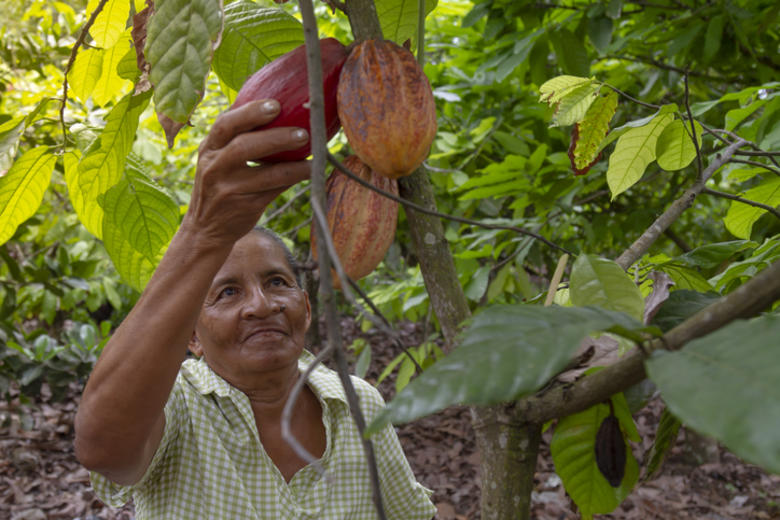OFF THE SHELF: OCTOBER 2021

OFF THE SHELF: OCTOBER 2021
Books to read this month
Published: 5 October 2021
Author: Richard Lofthouse
Share this article
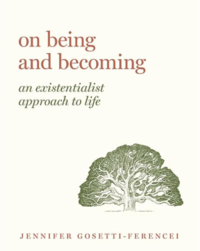
Jennifer Ferretti-Ferencei’s (St John’s, 2005) On Being and Becoming, An Existentialist Approach to Life (OUP, 2021) sits within a recently launched OUP series of books aimed at a general audience. It’s a terrific cook’s tour of existentialism, then played generously through the lens of now, so much so that there’s a chapter on selfie taking – which is dismissed as evidence of being trapped in a corrosive atmosphere of aestheticism, a posture which is going to provoke insecurity rather than authenticity.
Wait, isn’t the selfie proof of agency? Well it is, and ultimately ‘existentialism encourages individual choice and creativity in one’s singular relation to possibility’ says the author. No one can ultimately tell you what to do.
Even more tantalisingly: ‘For the existentialist, there is no such self as one may find. There is only a self that one may become.’ That’s to guard against the idea that we all have a self that just has to be ‘found’. The whole point is that we have to build our own bridge across the stream of life, as Nietzsche put it; no one can do it for us, only me, and you.
But it’s painful and that’s the rub.
The author recounts a troubling episode in which one of her students opted for a military existence rather than a PhD, to avenge 9/11. A year or two later, he wrote to her for advice on whether to stay in uniform, but she declined to reply; and he was later killed in action.
She felt remorse at not writing to him, but consider Nietzsche’s note that ‘One repays a teacher badly if one remains only a pupil’ – the student should have been able to make his own mind up – and the poet Rilke who insists there are innumerable ‘questions that only your innermost feeling, in your quietest hour, can perhaps answer.’ He probably did; we cannot rue the outcome if the alternative life in a library might have frustrated.
If the environmental catastrophe of climate change gnaws away at you, Rilke is there for you again, suggesting a poetic transformation of our relation to the natural world ‘and in giving up wooing the angels, as he puts it in Duino Elegies—we might find an earth-bound form of happiness.’
There is enormous scope in the book and like all books on this subject, it emits an infectious, raw energy while not perhaps doing much more than pushing the reader back onto her own devices. We are remarkably free but the world will push back too when you defy it. Are you ready for that?
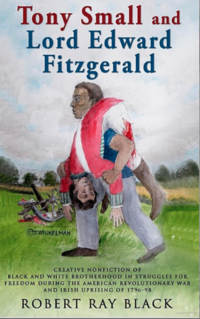
In Tony Small and Lord Edward Fitzgerald, author Robert R Black (Pembroke, 1969) has reconstructed from limited evidence a free black man’s experience of the American Revolution in South Carolina and his friendship with a British officer he saved from the battlefield. The result is termed ‘creative nonfiction.’ It could be compared to the colourising of World War One footage in Peter Jackson’s film They Shall Not Grow Old from 2018, which attempts to go deeper into the historical imagination through a creative act.
We thought we’d quote Bernard O’Donoghue’s comments, he being an Emeritus Fellow at Wadham:
[Tony Small and Lord Edward Fitzgerald] is a marvellous piece of historical recuperation, based on scrutiny of documentation. Its two Parts, one ‘creative nonfiction,’ one historical notes, present a remarkably convincing and original literary form, the principal outcome of which is to record black achievements and experience in their own right. This is a major and important work.
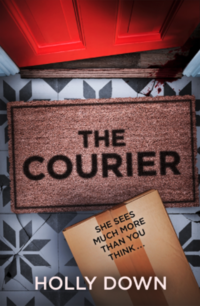
Holly Down (New College, 2004) has just published her debut novel The Courier. The suspenseful thriller has been compared to titles by Clare Mackintosh, Adele Parks and Lisa Jewell. It offers an intriguingly 'downward' plot line, the protagonist having gone from being a boringly affluent city worker and perfect wife to a 40-year-old courier earning peanuts and alone in the world. From her position of social invisibility she attains powers of insight and becomes fascinated by the residents of Paradise Found, an exclusive gated cul-de-sac. She sometimes even finds her way there when she's not working, using her days off to soak up as much information about the inhabitants and their lives as she can. Then one day Laurel sees something in one of the houses - something that blows her whole world apart, and will have devastating consequences for everyone involved . . .
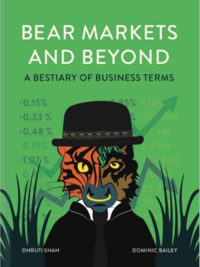
Bear Markets and Beyond, A Bestiary of Business Terms (Portico)
Co-author with fellow hack Dominic Bailey, Dhruti Shah (Mansfield, 2000) says she saw a Bestiary for the first time at Oxford, and the idea stuck. Now she has written up what looks almost like a children’s guide to banker jargon but of course it isn’t – unless we call banking childish, which might not be an entirely fruitless line of enquiry given the jungle of big beasts that roam daily around the global economic ecosystem.
As well as more familiar terms such as piggy bank, loan sharks and rat race, there are alligator spreads - which occur when an investor will never be able to make a profit on their transactions, or a lobster trap, which is a type of strategy a company will deploy in order to prevent a hostile takeover. There is even the memorable honorific of 'vampire squid' given to Goldman Sachs. Great edutainment for all and still worth a glance if you work in the Square Mile, if only for the terrific illustrations.
Off the Shelf typically concerns books where there is an Oxford connection, whether the place, the University or of course the author.
Alumni can claim 15% discount in any Blackwell's store with a My Oxford Card.
Details about the Oxford Alumni Book Club are at: www.alumni.ox.ac.uk/book-club









